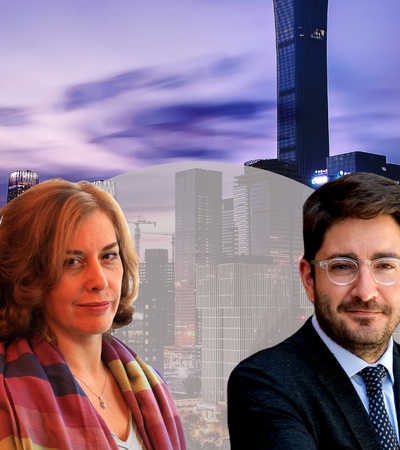
THE AXIS MOSCOW-BEIJING? WHAT DOES IT MEAN FOR EUROPE?
- Home
- What's Going On?
- The Axis Moscow-beijing? What Does It Mean For Europe?
The panel discussion “The Axis Moscow-Beijing? What does it mean for Europe?” organized by IE University and the Friedrich-Naumann Foundation for Peace highlighted the future consequences of a closer relationship between Russia and China, especially in so far as it affects European countries. Although the existence of an “axis” was questioned by some panelists, participants agreed on the importance of an increasing alignment on global security issues in recent months between Russia and China.
The panel, moderated by Professor Alexander Görlach, senior fellow at the Carnegie Council for Ethics in International Affairs, included Mariin Ratnik, Estonian Ambassador to Spain, Manuel Muñiz, IE Provost and Dean of the School of Global and Public Affairs, and Alicia García-Herrero, Chief Economist Asia Pacific at Natixis.
Panelists stressed that Russia’s invasion of neighboring Ukraine has put at stake the international liberal order. The consequences of the conflict, including the atrocities and violence committed in European soil, are making Beijing deeply uncomfortable, explained Dr. Muñiz during his remarks. Alicia García-Herrero, who joined from Hong Kong, added that China’s hesitation to position itself internationally is due to the country’s deep distrust of the United States and fears that the international community will similarly subjugate it to a crippling global economic response.
Ambassador Ratnik reminded the audience that alignment between China and Russia has been around for centuries and has an asymmetrical dynamic which, she stressed, varies depending on the context and situation, and could therefore result in unexpected effects on the state of international geopolitics. In concluding, all panelists agreed that the relationship between Beijing and Moscow needs to be closely monitored in the future, exploring its changing dynamic and influence on other areas of regional importance to Europe.